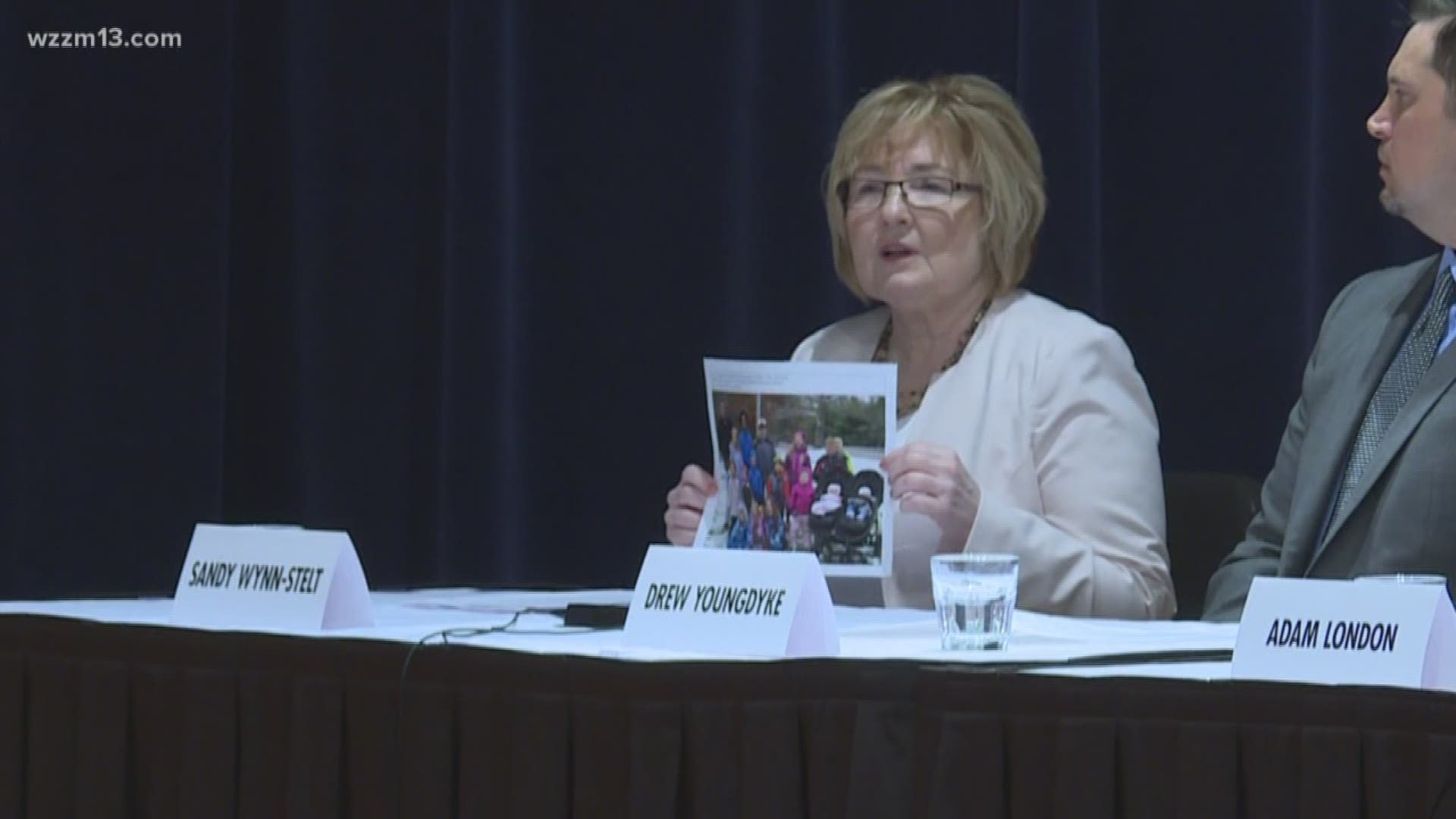GRAND RAPIDS — Angry and frightened.
Those are not words one often hears from a state government scientist.
But that's how a Michigan Department of Environmental Quality official said he felt after realizing — eight years ago — the scope and strength of the state's problems with PFAS chemicals, which have contaminated water supplies and endangered the health of residents at sites around the state.
"In 2010, I began to feel that I was at the edge of the abyss looking into hell with the weight of the world on my shoulders," Robert Delaney testified Tuesday at a PFAS meeting in Grand Rapids organized by U.S. Sen. Gary Peters.
However, "my fear and anger turned to conviction and determination," Delaney said at Grand Valley State University.
Robert Delaney (Photo: Paul Egan/Detroit Free Press)
Delaney, a geologist and veteran DEQ specialist, began raising concerns about the threat of per- and polyfluoroalkyl substances in 2010, and in 2012 he sent former department director Dan Wyant a 93-page report that detailed the threat to Michigan's drinking water and residents. That report was largely ignored and was not made public until 2017.
Delaney testified Tuesday he made recommendations in the report about how to limit public exposure to PFAS chemicals, but "I didn't get any feedback until this year on it." He said he was "just trying to get somebody to listen," but Wyant — who resigned in 2016 in the wake of the Flint lead-in-drinking-water crisis, "really didn't understand environmental science or issues."
Despite the inaction on Delaney's report, Michigan is now seen as a leader in confronting what is a nationwide problem after Gov Rick Snyder issued a November 2017 executive order to create a PFAS action response team.
The PFAS family includes thousands of chemicals that are widely used in products such as firefighting foam, waterproofing, non-stick pans and anti-stain coatings on upholstery. These chemicals don’t break down in the environment and have been linked to cancers, reproductive problems and other health issues.
State officials have warned people not to eat both fish and deer from around the former Wurtsmith Air Force Base in Oscoda Township in northern Michigan after PFAS was found in high levels in a white foam increasingly coating the surface and shores of waters surrounding the base. PFAS drinking water contamination is also a huge issue around Rockford in western Michigan, near a former Wolverine World Wide shoe manufacturing site. High levels also were found this year in drinking water near a paper mill in Parchment, in the Kalamazoo area.
On Tuesday, Delaney stressed he was not speaking for the state or the DEQ, but "as Bob Delaney, state employee, scientist, father and citizen."
"The current crisis we are facing ... has troubled me for years," Delaney testified. "I believe that we are currently suffering as a people because of a lack of protection of our population, especially the fetus, from dangerous chemicals."
Delaney said that "until 2010, I was under the false impression that when it came to chemical contamination of the environment that at least America had things under control."
Delaney began testing drinking water wells at Wurtsmith in 2010, and after readings showed extremely high levels of PFAS, he began researching the health risks associated with the chemicals.
"The deeper I got into these issues, the more frightened and angrier I became," Delaney said in written testimony. "I realized that I had been duped into thinking that we were being protected by our laws. We have been contaminating our population for years."
On the state's response to PFAS, Delaney said "nothing is perfect," but Michigan is one of a few states now "shining a light" on the problem.
Delaney said far more information is needed on the health impacts that PFAS and other chemicals are having. He said "understanding how we could get ourselves into such a mess is important," but more important than pointing fingers is working together, including with business and industry, to find solutions.
"I don't know how much it will cost to address just the PFAS crisis and whether we can afford it, but I do know that no nation can afford to poison its children."
Peters called the meeting to help inform the federal government on how to address the PFAS crisis. The meeting heard testimony from state, local and national health and environmental officials, as well as Belmont resident Sandy Wynn-Stelt, who has elevated levels of PFAS in her blood after drinking the water for years near Rockford.
The U.S. Environmental Protection Agency declined to participate in the meeting, though the agency sent a letter, Peters told reporters.
Peters said after the meeting the PFAS issue is urgent and one of the first things that needs to happen is the establishment of nationwide federal standards.
"People can't wait," Peters said. "This is not something that we can sit around and wait five years for a standard to be created."
Contact Paul Egan: 517-372-8660 or pegan@freepress.com. Follow him on Twitter @paulegan4.
►Make it easy to keep up to date with more stories like this. Download the 13 ON YOUR SIDE app now.
Have a news tip? Email news@wzzm13.com, visit our Facebook page or Twitter.

